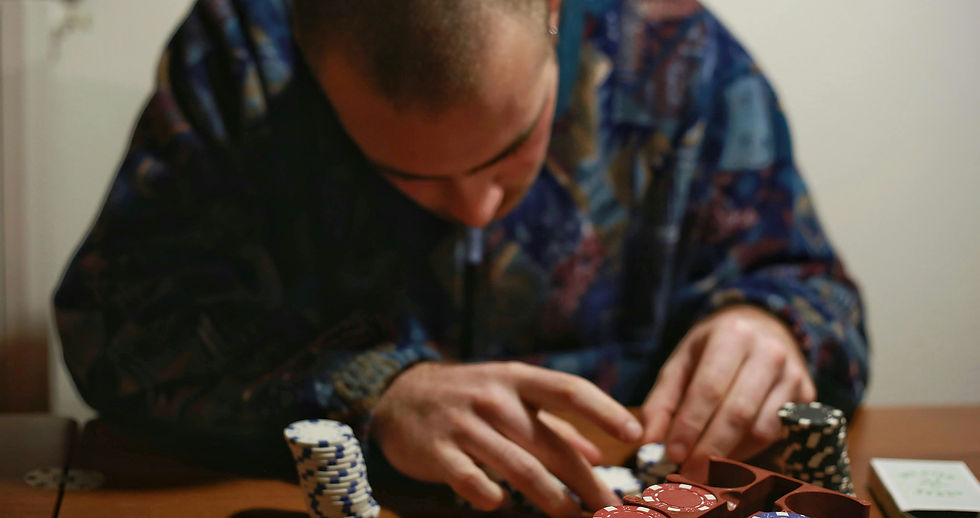What Do Gamblers Feel When They Gamble?
- Nathanael Zibaki

- Jun 28, 2024
- 3 min read

Many people think gambling is fun when they start gambling, and the reason is pretty simple, they have experienced the taste of a get-rich-quick mentality for the first time. But is it actually the only feeling they will experience through their gambling journey? Will their feeling change over time if they continue gambling? As someone who used to gamble frequently, I will tell you what gamblers feel when they gamble.
Gamblers experience a mix of emotions when they are gambling, both positive and negative, depending on whether they're winning or losing, and also on their overall gambling habits. Those emotions change quickly over time based on how well their bet goes throughout the game. The emotion can start from frustration to excitement, fun to stress, enjoyment to regret, hope to desperation, and vice versa.
Is this mixed experience of emotions good for your mental health? How will it affect your daily life and relationships? Will it build you up or tear you apart? In the following line, I will tell you how these mixed emotions will impact your personal life.

The mix of emotions that gamblers experience while gambling is harmful to their mental health for a very simple reason. They are more affected by negative emotions, which can worsen their gambling habits, damage their self-esteem, and harm their relationships. Even the positive emotions they experience do not lead to personal improvement and are unlikely to last. Instead, they may just serve as a boost that leads to gambling addiction and reinforces their gambling habits.
How The Positive Emotion in Gambling Will Affect You
The positive emotions that gamblers experience while gambling serve as fuel to perpetuate their gambling behaviour. Winning in gambling creates the belief that it's possible to make a large amount of money quickly, promoting a get-rich-quick mentality. This mindset often leads people to overlook the potential for significant losses. Even when they win, the dopamine rush from gambling can lead to continued risky behaviour, resulting in further losses.
Every time a gambler has a winning experience, it triggers the release of dopamine in their brain. Dopamine is a neurotransmitter that makes people feel good and excited. The effect of dopamine is similar to that of drugs; when you get used to it, you'll want the same experience to keep happening over and over. This can lead to a gambling addiction.
How The Negative Emotion in Gambling Will Affect You
The negative emotions experienced through gambling can be overwhelming, and the degree of pain will depend on the amount of money we lose and the use for the money we lose. These negative emotions will not just impact us, but they will also impact everyone around us, and everything we do. It can paralyze everything in our lives, pushing us to start having a lot of self-negative talk and leading even to suicidal thoughts.
Here are some common negative emotions people experience and how they affect people's daily lives:
Frustration and Disappointment: Losses are inevitable in gambling, and they often lead to frustration and disappointment. This could destroy an individual confidence level, telling themselves that they are not as good as they thought they were.
Regret and Guilt: Especially after losing a significant amount, or losing money that we were not supposed to gamble with, gamblers may experience regret and guilt over their choices. This usually leads the individual to start the self-negative talk, telling themselves they are stupid, they are useless, and much more, and this will destroy the individual self-esteem and self-worth, making them feel ashamed of themselves and their actions.
Anxiety and Stress: The uncertainty of gambling can also cause anxiety and stress, particularly for those who gamble excessively.
Desperation and Chasing Losses: In severe cases, individuals with gambling problems may feel desperate and compelled to continue gambling in an attempt to recoup their losses (known as chasing losses), leading to significant financial and personal difficulties.






Comments